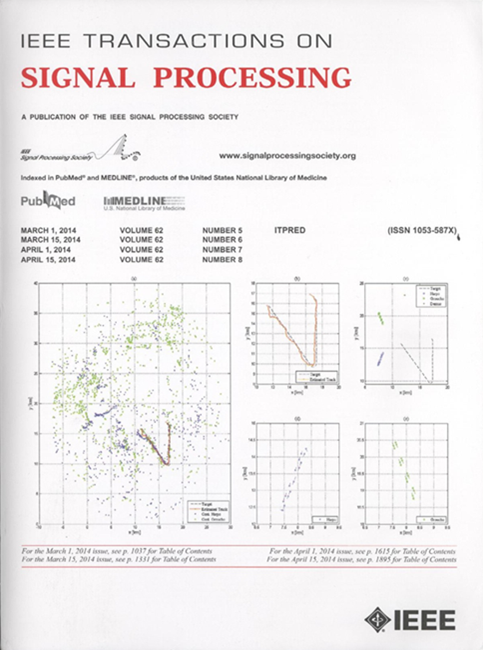在状态依赖网络上进行社会学习的通用框架
IF 4.6
2区 工程技术
Q1 ENGINEERING, ELECTRICAL & ELECTRONIC
引用次数: 0
摘要
许多社会和分布式学习应用经常会出现高度相关的观测结果。特别是,对底层参数的了解往往不足以从统计学角度对观察结果进行解耦。这一特点对这些学习系统的分析和学习规则的设计提出了挑战。在很多情况下,这种耦合可以通过额外的状态变量来有效捕捉。为此,我们基于状态的概念,推导出了一个新的社会学习框架。该框架允许将条件独立情况下的几个经典结果扩展到条件依赖情况下,从而大大简化了决策规则的设计和分析。本文以传感器网络中的拜占庭攻击为例进行了探讨。具体而言,研究表明拜占庭攻击下的学习问题属于针对某些广泛使用的攻击模型提出的框架,从而突出了该框架的实用性。此外,还推导出了大型网络的最优决策规则,并证明这些规则优于在条件独立观测假设下计算出的规则。本文章由计算机程序翻译,如有差异,请以英文原文为准。
A Generalized Framework for Social Learning Over State-Dependent Networks
Many social and distributed learning applications often exhibit highly correlated observations. In particular, knowledge of the underlying parameters is often insufficient to decouple observations statistically. This feature challenges the analysis of these learning systems and the design of learning rules. In many cases, this coupling can be effectively captured by an additional state variable. To this end, a new framework for social learning, based on the notion of state, is derived. The framework allows for extensions of several classical results for the conditionally
independent
case to the conditionally
dependent
case, considerably simplifying the design and analysis of decision rules. A numerical example focusing on Byzantine attacks in sensor networks is explored. Specifically, it is shown that the problem of learning under Byzantine attacks belongs to the proposed framework for some widely used attack models, highlighting the utility of the framework. Furthermore, the optimal decision rules for
large
networks are derived and shown to be superior to those computed under the assumption of conditionally independent observations.
求助全文
通过发布文献求助,成功后即可免费获取论文全文。
去求助
来源期刊

IEEE Transactions on Signal Processing
工程技术-工程:电子与电气
CiteScore
11.20
自引率
9.30%
发文量
310
审稿时长
3.0 months
期刊介绍:
The IEEE Transactions on Signal Processing covers novel theory, algorithms, performance analyses and applications of techniques for the processing, understanding, learning, retrieval, mining, and extraction of information from signals. The term “signal” includes, among others, audio, video, speech, image, communication, geophysical, sonar, radar, medical and musical signals. Examples of topics of interest include, but are not limited to, information processing and the theory and application of filtering, coding, transmitting, estimating, detecting, analyzing, recognizing, synthesizing, recording, and reproducing signals.
 求助内容:
求助内容: 应助结果提醒方式:
应助结果提醒方式:


